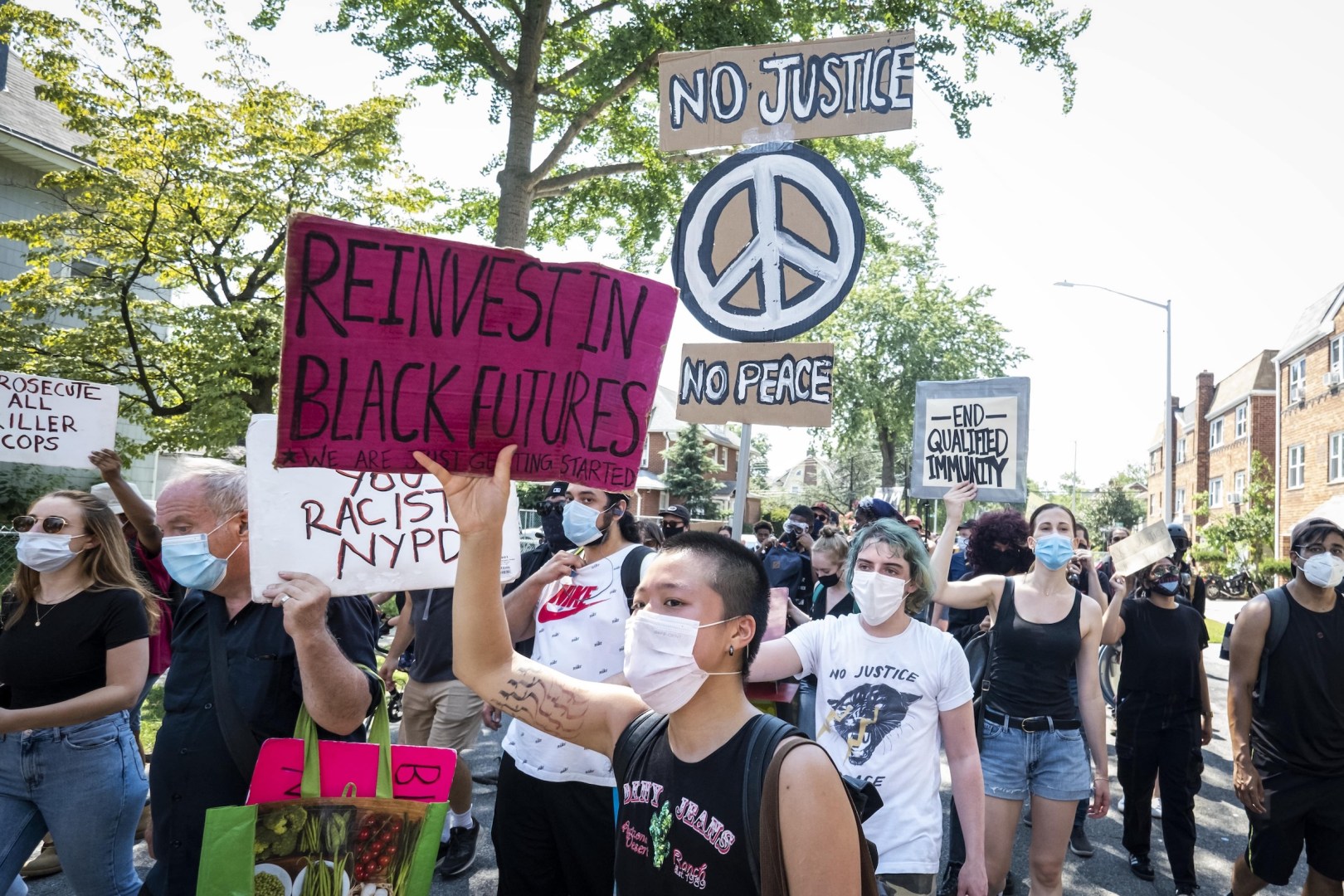
Commentary
-
Our commentary partners will help you reach your own conclusions on complex topics.
Okay, I want to have a real conversation with you about the word reparations and what it means. Listen, don’t judge it before you hear this part, the American government is not against reparations. As a matter of fact, you are likely not against reparations. Understand, reparations is simply a word that means repair. And in order to repair something, you have to acknowledge it is broken. Once you can acknowledge that it is broken, you must then acknowledge it needs to be fixed. Once these dynamics are established, you then look for the responsible party. In the case of reparations for the descendants of slaves, or reparations for black people in the United States of America at large, the party who broke it is the American government. We can all agree to that.
Let’s talk about America’s fascination with reparations. As a country, we have given reparations to Native Americans, not to the tune they deserved, but it is a form of reparations or repair. We’ve also given reparations to other groups, such as the Japanese, and members, family members, who were connected to those killed in the Holocaust. We did that recently. We gave governmental money and benefit because we thought it was worthy of repair — and rightfully so.
You see, here’s the thing. Reparations is not actually opposed by the United States government. It’s not opposed by lawmakers. Because this country has voted routinely to grant reparations to various groups that they have deemed to be worthy of this due to government action or even government inaction.
They are, however, seemingly against reparations for Black people. That’s different. Let me take you to a conversation that Dr. Phil had on his program not too long ago. And I want to I want you to understand why it’s offensive to many Black people in America. Dr, Phil said, if you give, if you give black folks $300,000 plus, or $800,000 plus, it will be a total disaster. He talked about how this would not create generational wealth, etc. Okay. That’s his opinion. Now, he tried to clean it up by saying if you give any group that much money, and then he started naming other groups, all right. Now he left off groups, like rich people; he said poor people, but he didn’t say rich people.
Here’s the reality. Dr. Phil, you can facilitate discussions like this, but you do not bear the credentials to conclusively say what Black people should or should not receive, because it is on us to have that conversation with you and others. We lead that conversation, not you. It’s very simple. To suggest that somehow in order to qualify for reparations, Black people need to be trained how to spend money. That’s basically what Dr. Phil said. There needs to be guidance and coaching. And I’m not saying those elements should not be in place. What I am saying is that you don’t use it as a prerequisite in order to get money that you are all ready owed. Remember, reparations is not a handout. It is based on this one reality.
There was an unfair government-approved or government-led operation that made this dysfunction and we have to create a remedy for it. So reparations is not based on race. It is based on the behavior of the government toward a particular demographic. And if that particular demographic happens to be of one race, then naturally that’s where the remedy resides. You know who else received reparations? Slave owners. Look it up. DC emancipation, because of the hurt and economic harm that slave owners would receive due to the freeing of the enslaved African. They were given reparations based on the number of enslaved human beings they could no longer legally enslave. Isn’t that interesting? So let’s count the ways various groups after receive reparations, even slave masters receive reparations during that era, but no reparations for African Americans. If you believe it was broken by the government, you have to believe that the government is part of or should be part of the remedy. Reparations should not be off the table as some kind of fringe discussion. It is a normative discussion, a credible discussion and a needed discussion.
-
Don’t fall for GOP’s cheap racist attacks on Kamala Harris
Republican rhetorical attacks on Vice President Kamala Harris, the leading Democratic candidate for president, escalated as soon as President Biden announced that he was stepping back from the election. Many Republicans accused Harris of being “a DEI hire” and indicated that she only got her position because of her skin color or gender, not her…
-
Violent rhetoric in politics amplified by Republican leaders
In the wake of the attempted assassination of former President Donald Trump, some Republicans were quick to blame Democrats for the attack, linking it to “incendiary rhetoric” about Trump. One recent example cited by his supporters is President Joe Biden’s comment: “It’s time to put Trump in the bullseye. He’s gotten away with doing nothing…
-
America is in trouble
President Biden’s debate performance drew a variety of reactions from Democrats, with some calling for him to step down, others saying that he should support another candidate, and some still insisting that Biden remains the best choice. Meanwhile, the U.S. Supreme Court expanded presidential powers and criminal immunity in its Trump v. United States decision…
-
Americans deserve younger candidates, better ideas
On March 7, President Joe Biden delivered a well-received State of the Union address, speaking clearly and in detail about the challenges that the nation must confront. Less than four months later, on June 28, a very different-looking president took the stage to debate Donald Trump. In both speech and physical appearance, this Biden suddenly…
-
Time for Christian evangelicals to part ways with Trump
As former President Trump vies for another shot at the White House, one loyal demographic he is counting on is white Christian evangelicals. More than 80% of evangelicals backed Trump in the 2020 election, and after endorsing a Louisiana law requiring the Ten Commandments to be displayed in public school classrooms, he’s gearing up for…
Latest Stories
-
 U.S. Department of Defense
U.S. Department of Defense
Congress still trying to figure out how to reduce wasteful military spending
-
 DVIDS
DVIDS
US Navy, Air Force making waves with new weapons at RIMPAC
-
 Getty Images
Getty Images
Israeli PM Netanyahu meets with Trump at Mar-a-Lago
-
 Getty Images
Getty Images
Growing US nuclear power resurgence reaches the nation’s heartland
-
 Getty Images
Getty Images
Beer from the sun, other solar thermal projects get government funding
Popular Opinions
-
In addition to the facts, we believe it’s vital to hear perspectives from all sides of the political spectrum.
Latest Opinions
In addition to the facts, we believe it’s vital to hear perspectives from all sides of the political spectrum. We hope these different voices will help you reach your own conclusions.
The opinions published in this section are solely those of the contributors and do not reflect the views of Straight Arrow News.

















Latest Commentary
We know it is important to hear from a diverse range of observers on the complex topics we face and believe our commentary partners will help you reach your own conclusions.
The commentaries published in this section are solely those of the contributors and do not reflect the views of Straight Arrow News.
Peter Zeihan
Geopolitical StrategistHow future generations could shift US support for Israel
Why election of European Commission president is so important
Protests in Bangladesh signal more trouble ahead
Dr. Frank Luntz
Pollster and Political Analyst‘I don’t know’: Swing voters debate who best to replace Biden
‘Mad as hell’: Americans vent anger, frustration over politics
‘On death’s door’: Undecided voters react to first debate